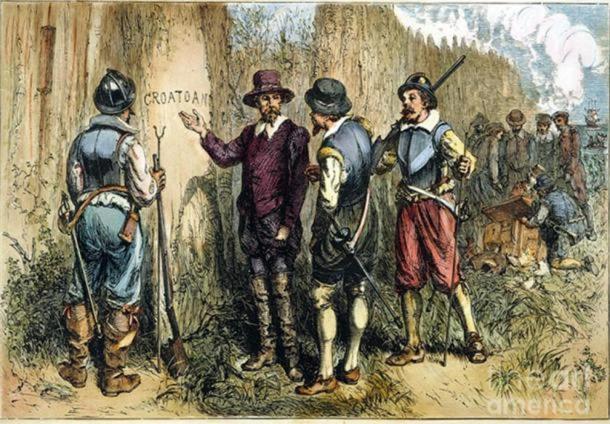7 Ways Britain Is Honoring Jane Austen’s 250th Birthday Like the Literary Icon She Is (image credits: Unsplash)
The cobblestone streets of Bath and Hampshire are buzzing with celebration this year, as visitors and locals alike gather to honor one of literature’s most beloved voices on her milestone anniversary.
## A Birthday Celebration Two Centuries in the Making
Here’s something that might surprise you: Jane Austen wrote some of the world’s most enduring love stories, yet she never married. At 250 years old (well, if she were still with us), Austen’s wit and wisdom continue to captivate readers worldwide. Britain isn’t just marking another anniversary—they’re throwing a literary party that would make even Mr. Darcy crack a smile.
The festivities aren’t your typical museum exhibitions and dusty book readings. From immersive experiences to contemporary art installations, the celebrations are proving that Austen’s influence extends far beyond the pages of “Pride and Prejudice.”
## Walking in Her Footsteps Across England
The Jane Austen trail has never been more popular. Bath, where Austen lived and set parts of “Persuasion” and “Northanger Abbey,” has transformed into a living tribute to the author. Visitors can:
- Explore the Jane Austen Centre with new interactive exhibits
- Take guided walks through the Georgian streets she once knew
- Attend period costume balls in the Assembly Rooms
- Visit the restored Pump Room where her characters socialized
- Experience pop-up theatrical performances in historic locations
Meanwhile, Hampshire—her birthplace and final home—offers a more intimate glimpse into Austen’s world. Her former residence in Chawton has expanded its offerings, showcasing rare manuscripts and personal artifacts that reveal the woman behind the wit.
## From Stage to Screen: Modern Adaptations Flourish
This anniversary year has sparked a renaissance of Austen adaptations. Theater companies across the UK are presenting fresh takes on her classics, while new film and television projects are in development. The enduring appeal lies in Austen’s ability to combine sharp social commentary with timeless human emotions.
What’s fascinating is how contemporary creators are finding new angles. Some focus on the servants’ perspectives, others explore the economic realities behind the romance. These modern interpretations prove that Austen’s themes of class, money, and social mobility remain remarkably relevant.
## The Economics of Love and Literature
One aspect often overlooked is how Austen’s novels function as economic treatises disguised as romance. Her characters constantly navigate financial constraints, inheritance laws, and social expectations tied to money.
| Novel | Central Economic Theme | Modern Parallel |
|---|---|---|
| Pride and Prejudice | Marriage as financial security | Economic partnerships in relationships |
| Sense and Sensibility | Inheritance and women’s rights | Gender pay gaps and wealth inequality |
| Emma | Class privilege and social responsibility | Wealth activism and social justice |
This economic lens makes her work surprisingly contemporary. Today’s readers grappling with student loans, housing costs, and career uncertainty find unexpected wisdom in Elizabeth Bennet’s pragmatic approach to love and money.
## Digital Age Darcy: Austen’s Online Renaissance
Social media has given Austen a second life. BookTok creators regularly feature her novels, while Instagram accounts dedicated to “Austen aesthetics” attract millions of followers. The author who once relied on circulating libraries now reaches global audiences through algorithms and hashtags.
Fan fiction communities have embraced Austen with particular enthusiasm. Thousands of writers worldwide create new adventures for her characters, exploring everything from modern-day retellings to alternative historical scenarios. This democratic approach to storytelling would likely amuse Austen, who was herself quite revolutionary for her time.
## The Feminist Icon We Almost Missed
Recent scholarship has highlighted aspects of Austen’s feminism that earlier generations overlooked. Her heroines consistently challenge social norms, make independent choices, and refuse to settle for less than they deserve. Elizabeth Bennet’s rejection of Mr. Collins wasn’t just about love—it was a bold assertion of women’s right to choose.
The anniversary celebrations include academic conferences examining Austen’s progressive politics. Scholars are presenting new research on her attitudes toward slavery, colonialism, and women’s education. These discussions add complexity to our understanding of both the author and her era.
## Beyond Romance: The Lasting Literary Legacy
- Austen’s influence extends across multiple art forms and generations
- Her economic insights remain relevant to modern financial discussions
- Digital platforms have introduced her work to entirely new audiences
What makes this 250th anniversary so special isn’t just the scale of celebration—it’s the recognition that Jane Austen created something far more enduring than period romance. She crafted a mirror for human nature that remains clear and true centuries later. Her characters struggle with the same fundamental questions we face today: How do we balance heart and head? What role should money play in our happiness? How do we navigate social expectations while staying true to ourselves?
The year-long tribute across Britain demonstrates that great literature doesn’t age—it deepens. As you consider your own relationship with classic literature, ask yourself: What timeless truths are hiding in the stories we sometimes dismiss as “just” romance?







